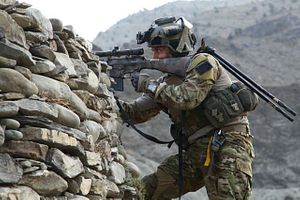On September 16, a suicide bomber targeted worshipers in a remote Pakistani village on the Afghanistan-Pakistan border, killing 30 and injuring dozens civilians. Hours later, a spokesman for a splintered Pakistani Taliban group claimed responsibility by asserting that the villagers were being punished for raising an anti-Taliban Lashkar, a militia of tribal volunteers.
The same month, Taliban fighters attacked the lower courts in the city of Mardan, in northwestern Pakistan, killing several people, including local lawyers and policemen. This was the second attack on lawyers in less than a month period. Earlier, on August 8, a Taliban bomber blew himself up amidst lawyers in the city of Quetta, in Balochistan province. The lawyers were gathered at the city’s hospital to collect the dead body of their colleague, who had been killed hours before.
The recent attacks on civilian targets amid claims by Pakistani authorities of having “successfully” driven the militants out of Pakistan’s border region and disrupted their command and control structure are providing room for skepticism about the success and effectiveness of Pakistan’s much-hyped military operation Zarb-e-Azb. The operation was launched more than two years ago in June 2014 to target the Taliban groups involved in attacks inside Pakistan.
All three attacks, namely in Quetta, Mardan, and Mohmand, were claimed by the Jamat-ul-Ahrar (JuA), a splinter group of the Taliban headed by former Tehreek-e-Taliban Pakistan (TTP) deputy leader Abdul Wali (alias Omar Khalid Khorasani), who is believed to be hiding in the border region between Afghanistan and Pakistan.
Over the past few years, Khorasani has emerged as the most effective and powerful militant commander in the area. He had evaded numerous operations launched by the Pakistani security forces in the tribal region from time to time. A native of Mohmand tribal district, Khorasani is known for his radical Islamic views, matching that of the al Qaeda leadership, and is a sworn enemy of the Pakistani security forces.
After the killing of the dreaded TTP chief Hakimullah Mehsud in a drone strike in November 2013, which sparked a leadership struggle among key Taliban figures and factions from different tribal backgrounds, Omar Khalid retained his strong position on the ground as well as in the media.
While the Pakistani security forces proved their mettle by routing the Taliban and their affiliates from North Waziristan, key militant leaders such as Omar Khalid Khorasani, Mullah Fazlullah, and Mangal Bagh escaped unhurt. Consequently, their groups are still capable of carrying out attacks in the towns and cities by hitting mostly civilian targets.
Although the Pakistani military in a recent statement said that terrorist attacks in the country dropped from 128 in 2013 to 74 last year, the recent attacks are nonetheless alarming. Taliban groups are clearly still capable of carrying out large scale killings, despite an all-out operation that has now entered its third year and has displaced over a million tribesmen from their towns and villages.
Another alarming factor is the ongoing diplomatic deadlock between Afghanistan and Pakistan, the two neighbors and partners in the U.S.-led anti-terror war, who have both suffered from terrorist violence during the past 15 years. Pakistan accuses the Afghan authorities of providing sanctuaries to Taliban leaders such as Mullah Fazlullah and Mangal Bagh, while the Afghan side points accusing fingers at its Pakistani neighbors for supporting and harboring the Afghan Taliban and the Haqqani Network, who are responsible for most of the violence in the war-battered country.
The blame game ultimately benefits the militant outfits, who are skillfully using the hostile environment to ensure their sustenance and strengthen their position on both sides of the border. Strategists on either side may have a different view of the situation, but the past four decades of war and internecine has proved that support for proxies never rendered the desired results.
It is as simple as this: Pakistan’s support for the Afghan Taliban after the overthrow of their regime in late 2001 resulted in the emergence of various Taliban groups in the border region. With the passage of time, those groups went out of bounds and started challenging writ of the Pakistani state. The end result was a loss of more than 50,000 lives, serious shocks to the country’s economy, and a label of “terrorist haven” for a country once expected to become an “Asian tiger.”
Afghanistan, until few years ago, was accusing Pakistan of interference. Now, Pakistan is leveling the same allegations due to the presence of the TTP chief Mullah Fazlullah on Afghan soil. The recent blame game is widening the gap between the two sides and the ultimate victims are the people on both sides of the border, be they in Kabul, Kandahar, Quetta, Mardan, or Mohmand.
Daud Khattak is Senior Editor for Radio Free Europe Radio Liberty’s Pashto language Mashaal Radio. Before joining RFERL, Khattak worked for The News International and London’s Sunday Times in Peshawar, Pakistan. He has also worked for Pajhwok Afghan News in Kabul.
































